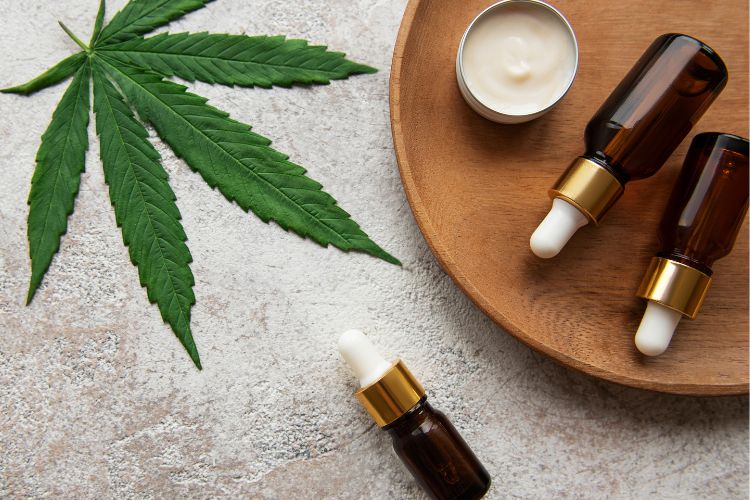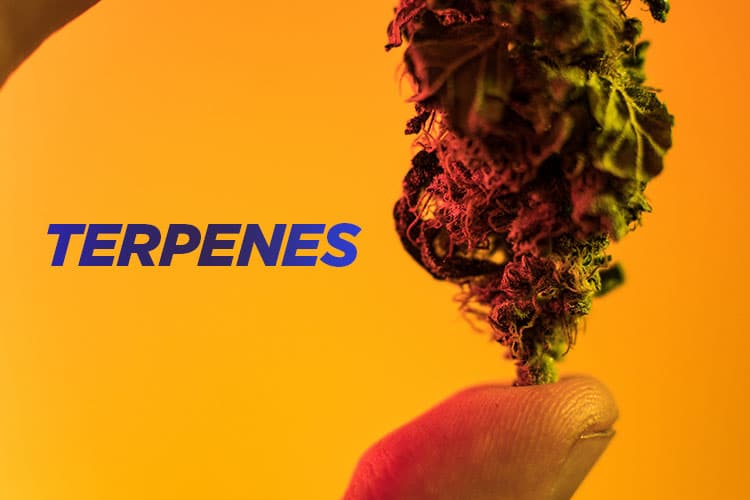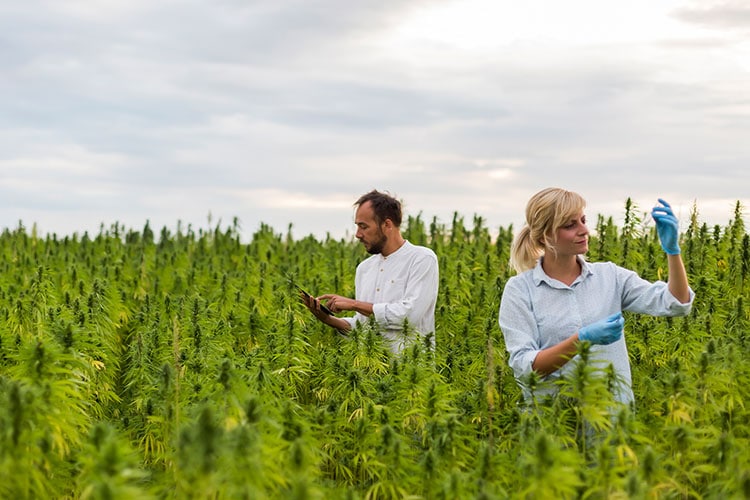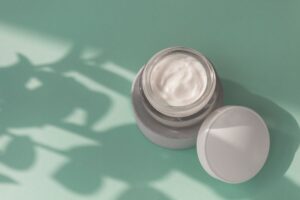CBD products are all the rage, as new scientific studies and trials keep producing evidence of medicinal and lifestyle benefits of CBD use. With a variety of medical conditions such as anxiety, depression, insomnia, post-traumatic stress, or seizures seeing a significant reduction in symptoms after the use of CBD products, it’s no wonder people are starting to catch on.
By far, the most popular CBD products in the market today are CBD tinctures and oils, which are easy to consume, dose, and store. In this short guide, we have put together several facts and points you should consider when choosing the right CBD tincture product for you and where to get most of them.
What is a CBD Tincture?
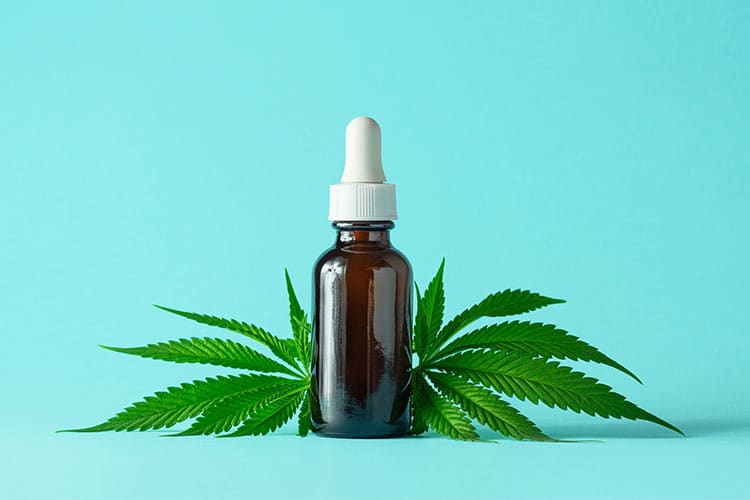
CBD tincture is a product that has a mix of concentrated CBD extract from the hemp plant and a carrier oil that protects the CBD extract and makes it long-lasting and easy to consume and dose. The CBD extract in tinctures is an extraction from the hemp plant achieved through distillation in ethanol or other solvents. CBD tinctures are a concentrated product that often have a high CBD content compared to many other CBD products on the market.
Differences Between CBD Oil vs. CBD Tincture
One of the main differences between CBD oil and CBD tincture is in the manufacturing process. Regular CBD oils use the infusion as the go-to process for CBD extraction. By mixing raw hemp plants with carrier oils, the cannabinoids transfer to the carrier oil. Therefore, CBD oils usually have a lower concentration of CBD in comparison to CBD tinctures, which use concentrated CBD extract achieved through distillation.
The Concentration
The concentration of CBD tincture is the first thing you should look at when choosing the right product for you. It is essential to note that CBD levels in tinctures can be as low as 200mg of CBD per bottle or even more than 3,000mg. The CBD concentration in tinctures is a sign of a quality product, but keep in mind that some quality CBD tinctures are low in CBD concentration on purpose and intended for use by beginners or people with extremely mild medical disorders.
The initial dose for beginners should be a few milligrams of CBD per day, making even the tinctures with low concentration last a long time. Over time, you can increase the dosage, but make sure to spend some time on lower doses until you can note how your body and immune system respond to that particular product.
What are Carrier Oils?
You might be asking yourself: Why is it necessary to use carrier oils, why not consume the CBD extract from distillation directly? The main issue with CBD extracts is their short shelf life. It would be impossible to market a product that would go bad in just a few days and lose its properties and health benefits.
Carrier oils act as a stabilizer of CBD extract and a preservative of its ingredients. By mixing a CBD extract with a carrier oil, the tincture is ready for bottling and shipping to customers. The most popular carrier oils used to produce tinctures are completely natural oil extracts such as extra-virgin olive oil, grapeseed oil, hemp seed oil, frankincense oil, or MCD oil (a mix of coconut and palm oil).
It is not unusual for a manufacturer to use more than one carrier oil in the CBD tincture. The goal is to absorb the maximum amount of CBD and improve the properties and health benefits of the product.
Other Ingredients in CBD Tinctures
Terpenes are essential oils from the hemp plant that are a byproduct of CBD extraction through ethanol distillation. Terpenes play a vital role in tying all of the CBD effects into a single product and produce a more robust and longer-lasting CBD tincture.
Depending on the type of CBD tincture, there might also be other cannabinoids such as CBDA, CBG, CBN, or THCA. They are often present in full-spectrum and broad-spectrum CBD tinctures. CBD isolate tinctures, on the contrary, only have CBD as an active cannabinoid.
To boost the benefits and effects of the tincture, CBD product manufacturers often introduce additional ingredients such as antioxidants and vitamins. This is handled with care to protect the integrity of the product while experimenting with elements that could offer additional benefits.
Extraction Methods
There are a variety of methods that make CBD extraction possible, but in reality, only two methods meet the strict criteria and demands of mass production, ethanol distillation, and CO2 extraction.
Extraction using ethanol is a more traditional method of producing tinctures that have been around for hundreds of years, with a proven track record in the manufacturing of herbal, natural, and homemade remedies. The quality of CBD extract is high, but there is a downside to the ethanol extraction method. Certain people are highly sensitive to ethanol, and those products might not be for them.
CO2 extraction is by far the most modern, advanced, and cleanest CBD extraction method that we currently have. It has gained a lot of popularity in the industry because it produces a high-quality product that is perfectly safe for use in a controlled, lab-like environment. The downside of the CO2 extraction is the cost of the equipment and the high qualifications necessary to perform it.
In general, small manufacturers, startups, or enthusiast products tend to stick to ethanol, while most of the high-end manufacturers use CO2 extraction. Stay away from other methods, as they can only lead to possible contamination of the CBD extract and a potentially harmful product.
Tips for Choosing the Right CBD Tincture
Choosing the right CBD tincture can be an overwhelming process that often includes combing through hundreds of pages of products by a variety of manufacturers, all claiming fantastic health and lifestyle benefits. The truth is far less rosy and much more down-to-earth. There are no miracle cures, but CBD tinctures and products in general do have significant health benefits.
The key is to find the CBD tinctures that are a quality product and, at the same time, target the medical condition that is bothering you. We have outlined several points to follow as you try to eliminate the products that do not meet your criteria.
Full Spectrum vs. Broad Spectrum vs. Isolate
Should you go for a CBD tincture that is a CBD isolate or go for the broad- and full-spectrum tinctures?
The answer to this is quite complicated. CBD isolates are concentrated extracts mixed with carrier oils that eliminate other ingredients and byproducts and focus on CBD as the main ingredient. This is perfect for those who suffer from side effects from other cannabinoids or some of the most common ingredients found in tinctures.
On the other hand, full-spectrum and broad-spectrum CBD tinctures are for those who need the benefits of additional cannabinoids in the tincture, as well as vitamins, immune boosters, and antioxidants.
Full-spectrum CBD tinctures contain all of these things, and most importantly, THC, which is a psychoactive and controlled substance. It is important to note that tinctures with a concentration of up to 0.3% of THC are legal and not controlled. The whole idea behind the full-spectrum approach is to utilize the entourage effect of cannabinoids and other ingredients and produce more significant health and lifestyle benefits in the mixture, rather than as individual ingredients.
Broad-spectrum CBD tinctures target those who would like the same benefits of the full-spectrum CBD tincture, minus the psychoactive THC. Some people might not enjoy the feeling of a “high” caused by the THC or are in a sobriety program. THC is a no-go for them.
Concentration
This one is quite straightforward. The higher the CBD concentration in the tincture, the longer the bottle will last, and the stronger the effect you can expect once consumed. A good rule of thumb is to go for higher concentration CBD tinctures, as they tend to be of higher quality due to the diligence and knowledge needed to produce it.
Even if it means using smaller doses when starting, a highly concentrated product is usually a telltale sign of a quality manufacturer and product. Carefully read the labels on the product in the store, or research the concentration online for CBD tinctures you are interested in ordering.
Extraction Method
We have already mentioned the two main extraction methods in ethanol and CO2 extraction. Which one should you choose for your CBD tincture?
CO2 extraction is the go-to method for CBD isolates, as it produces a pure, concentrated product that is free of contaminants and is remarkably consistent. This kind of purity and concentration is only achievable through CO2 extraction, so that should be your preferred extraction method if you are looking for a CBD isolate.
CO2 extraction fails at creating quality full-spectrum and broad-spectrum CBD tinctures. This is where ethanol extraction shines. It is a much simpler process that allows for the extraction of other cannabinoids along with CBD. If you are looking for a full- or broad-spectrum CBD tincture, then check the label or enquire about the extraction method used in the product.
Hemp Source
The final product is only as good as the raw materials used in its production. Hemp that comes from reputable growers and manufacturers is subject to regular checks, analysis, and quality control. Farmers across the US grow quality hemp, with Colorado and Kentucky particularly experiencing the boom.
There are a lot of CBD tinctures produced in China or other countries that come with questionable quality control and inconsistent or potentially harmful ingredients. Countries that strictly regulate products intended for human use take this very seriously and demand that these products are free of contaminants, pesticides, or any other chemicals.
Choosing a CBD tincture from US-grown hemp is a smart choice because you can rely on the safety of the product and expect the manufacturer to maintain the quality level over time. Choose a reputable manufacturer that has been in the industry for years and built a rapport with their customers.
Flavored vs. Unflavored
Let’s be honest. CBD oils and tinctures really struggle when it comes to the taste. Unless you are a fan of that grassy and earthy taste, chances are that you will have a problem with a CBD tincture’s natural flavor.
As with other products, manufacturers add the flavors to the CBD tincture to make it easier to consume and market. Still, it is crucial to be careful when choosing flavored products. Make sure that the added flavors are natural, safe, and do not cause side effects. Don’t do any additional harm to your body in the name of better taste.
Most of the flavors added to the CBD tinctures are already a part of the food production industry globally and usually safe for human consumption, though.
Conclusion
We hope our short guide helps in your search for the perfect CBD tincture for your needs. It is important to note that it is nearly impossible to find the right product on the first try. It is quite common that you will find several CBD tinctures that meet your criteria and you feel comfortable with. Feel free to experiment and try several products and compare the results you see over time.
Investing in your health and well-being is one of the smartest things you can do. As CBD products become more mainstream and scientifically-acknowledged, be at the forefront of discoveries in medicine. Make sure to follow the news and market, as new CBD tinctures or improved formulas make it to the market. Things are changing quickly in the CBD industry, so try to keep up.
FAQs About CBD Tinctures
Question: What is a CBD Tincture?
Answer: CBD tincture is a product that has a mix of concentrated CBD extract from the hemp plant and a carrier oil that protects the CBD extract and makes it long-lasting and easy to consume and dose. The CBD extract in tinctures is an extraction from the hemp plant achieved through distillation in ethanol or other solvents.
Question: What is the difference between CBD Oil and CBD Tincture?
Answer: One of the main differences between CBD oil and CBD tincture is in the manufacturing process. Regular CBD oils use the infusion as the go-to process for CBD extraction. By mixing raw hemp plants with carrier oils, the cannabinoids transfer to the carrier oil. Therefore, CBD oils usually have a lower concentration of CBD in comparison to CBD tinctures, which use concentrated CBD extract achieved through distillation.
Question: What are the other ingredients that are in CBD tinctures?
Answer: Terpenes are one of the ingredients that may be included in a CBD tincture. Others include CBDA, CBG, CBN, or THCA. They are often present in full-spectrum and broad-spectrum CBD tinctures. CBD isolate tinctures, on the contrary, only have CBD as an active cannabinoid.
Question: How to choose the right CBD tincture for me?
Answer: The key is to find the CBD tinctures that are a quality product and, at the same time, target the medical condition that is bothering you. Depending on the nature of your needs you may need a full spectrum or broad spectrum tincture.
Question: What are the extraction methods used to produce a CBD tincture?
Answer: Two of the common types of processes are ethanol extraction and CO2 extraction.
